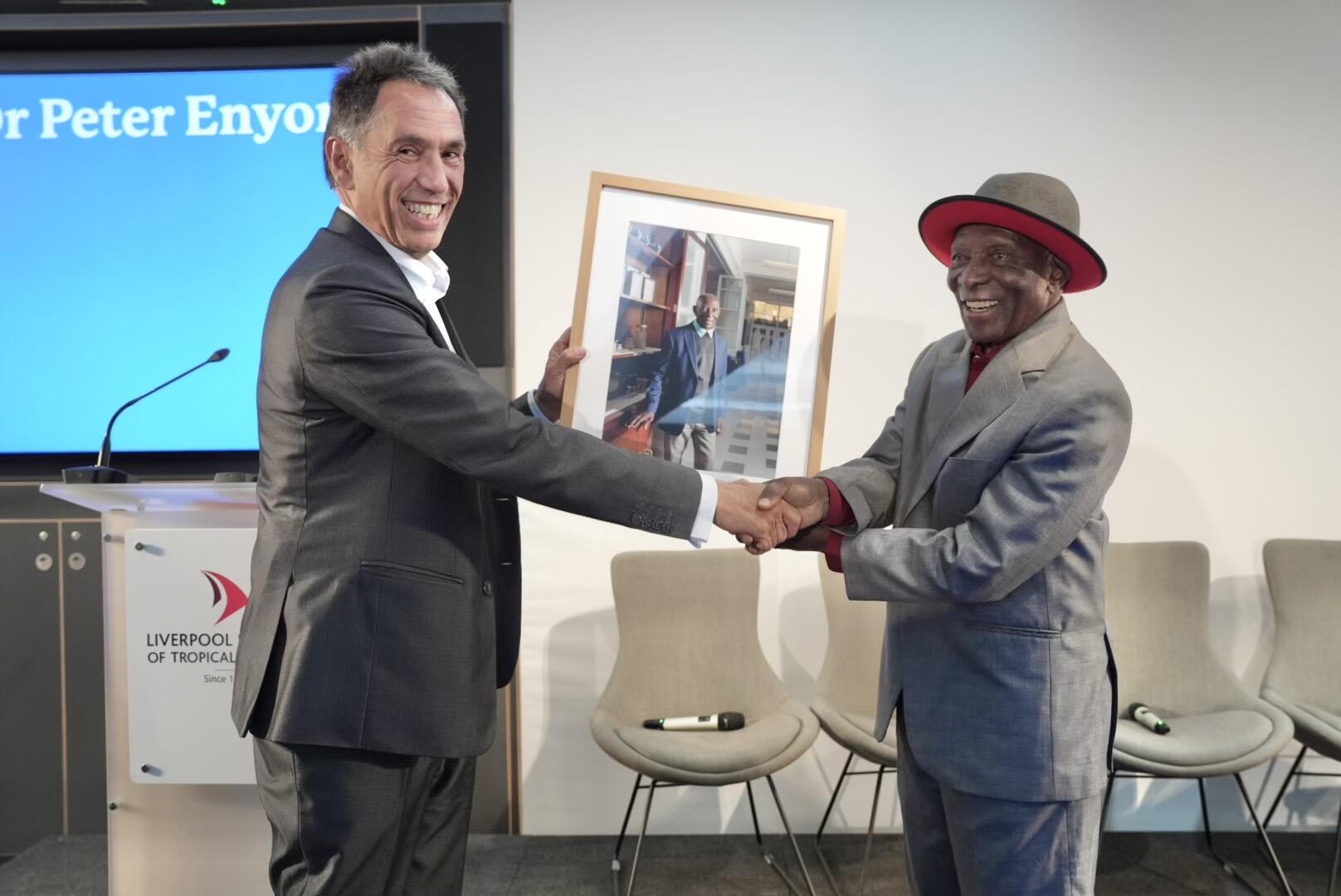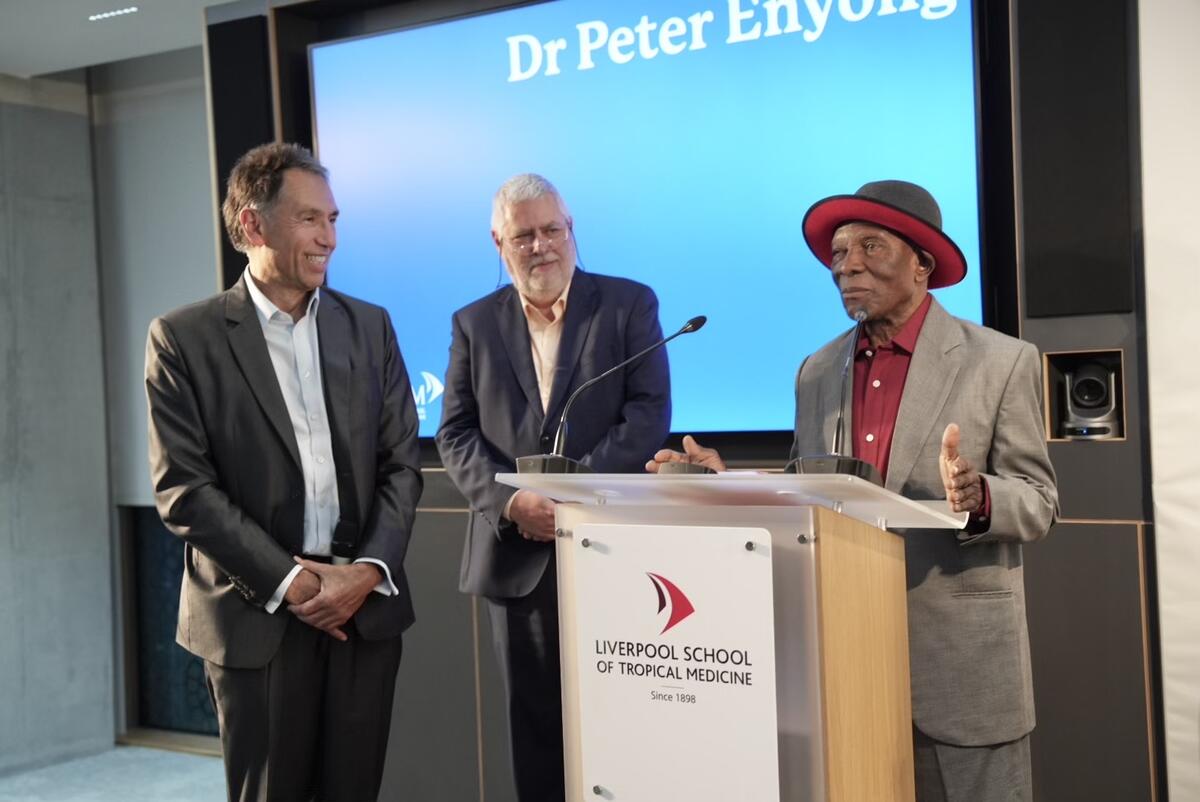
Liverpool School of Tropical Medicine has marked the integral but previously unrecognised contribution of the ‘unknown researcher’ as part of its commitment to address historic racial inequities.
During the final session of LSTM’s 125th Anniversary Scientific Symposium, Vice-Chancellor Professor David Lalloo made a special presentation to senior Cameroonian scientist Dr Peter Enyong on behalf of the ‘unknown researchers’ throughout LSTM’s history whose vital contributions to scientific discoveries were never formally recorded or recognised.
Before the presentation, Professor Lalloo spoke about the importance of acknowledging the colonial origins of LSTM, and the ongoing need for the school to ensure that its activities recognise and address historic racial inequities through its History and Heritage project. This will open LSTM’s archives to explore more stories that have never previously been told.
He said: “During the Scientific Symposium, we have seen some excellent examples of where race equity and equitable approaches are being embedded in the scientific research across the global health disciplines, but we all recognise the need to keep pushing forward in this area. Understanding and documenting our history, including the decolonisation of our archives, will remain a key part of our LSTM’s future activities.
“As we celebrate our 125th anniversary year and have been reflecting on our impact, we recognise that some of the people whose contributions have shaped LSTM over the last 125 years, or who have been impacted by our work, particularly in LMICs, have not been recognised.
“By telling Peter’s story we hope to recognise all those contributors around the world and throughout our history.”

Dr Enyong was presented with a specially commissioned photographic portrait to represent the contribution of those around the world and throughout LSTM’s history who remain unrecognised. The portrait will become part of LSTM’s first archive exhibition to be displayed in LSTM’s refurbished Mary Kingsley Building when it reopens in the spring.
Dr Enyong embodies the journey of the unknown researcher, having progressed from working as an assistant researcher in the same laboratory in Cameroon previously run by LSTM’s Professor Tim Gordon, who was one of the first of his generation to recognise the work of local collaborators in his research, to today being internationally acclaimed as a senior researcher and scientist. A renowned entomologist, Dr Enyong has made significant contributions to research related to Onchocerciasis, Loaisis and Podoconiosis. He is a co-founder of the Research Foundation for Tropical Diseases and Environment based at the University of Buea.
Accepting the award, Dr Enyong said: “I want to say thank you to those who thought of this idea of recognising the unknown researcher. The person who is behind the microscope will never one day be given a Nobel Prize, but without them nothing can work. The nurse who is in the hospital – those people should be recognised. I stand here in front of you to represent all of them – today, tomorrow and in the future.
“This is a first, and I hope that other organisations will emulate this and recognise those people who are always in the background and helping to move things ahead in tropical medicine.”